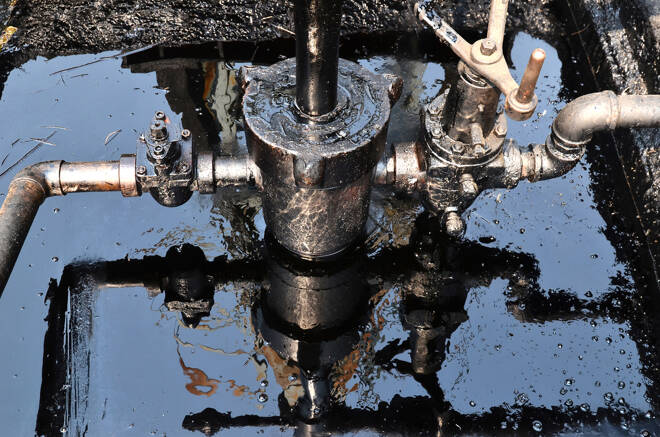Advertisement
Advertisement
Crude Oil and Libya – The North African House of Cards
By:
The grand prize for controlling Libya would be its enviable oil reserve, ranked 7th in the world, taking up 39% of Africa’s total reserves.
Rich in Oil Reserves and Proxy War Players
When oil prices crept to $120 a barrel, people turned to OPEC to increase production, in order to fill the vacuum left by the American and European ban on Russian oil products. However, the Arab nations did most of the heavy lifting, yet the overall production barely went up, some African nations had actually produced less oil in recent months. In the case of Libya, certain oil facilities and ports were closed due to political demonstrations and military conflicts.
What Exactly Happened in Libya?
Over ten years have passed since the last time the North African nation caught international attention. In 2011, Muammar Gaddafi was killed during the First Libyan Civil War – officially ending the leader’s controversial reign that spanned five decades. But his death only fragmented his opposition and loyalists into smaller camps, and brought forth the Second Libyan Civil War.
An uneasy peace was struck in 2020, with three major domestic leaders contesting for the legitimate leadership, and multiple nations lurking behind the curtains with vested interests.
Why Libya Is So Important for Crude Oil Markets?
The grand prize for controlling Libya would be its enviable oil reserve, ranked 7th in the world, taking up 39% of Africa’s total reserves, and possibly with more crude oil lies unexplored beneath the sands and sea beds. Libyan crude oil is known for its “sweetness” – which does not require much effort to be processed into conventional car fuels. Libya currently produces around 1.2 million barrels of crude oil on a daily basis, with five functional refineries, and expansion and repair plans underway.
Politics
Multiple pretenders have laid claim to the Libyan leadership, as of June 2022, three individuals were left in this presidential race: Dbeibeh, the current prime minister; Bashagha, the alleged successor elected by the Libyan House of Representatives; and Haftar, the military commander.
While Dbeibeh retained control in the west and the capital city of Tripoli, Haftar used Benghazi as his base and took the east, and Bashagha operated his administration in Sirte – a coastal city between Tripoli and Benghazi.
Foreign powers have provided support for various factions, Egypt and Russia backed Haftar; Qatar and Turkey assisted Dbeibeh. Although the EU officially recognized Dbeibeh, there were reports of France and Italy aiding Haftar. As the Russian invasion of Ukraine raged on, the situation has only gotten more complicated.
After Haftar launched an unsuccessful military campaign to take Tripoli, all sides have agreed to a ceasefire in 2020. Presidential and parliamentary elections were supposed to be held in 2021 to resolve the political stalemate, but they were postponed to June 2022, yet no updates are available on the election arrangements.
Elections and Oil
Assuming elections are held in the near future and oil production resumes, around 63% of the crude oil will be exported to Europe, a much less significant portion goes to the US. Brent oil prices would be relieved, because banning Russian oil had a larger impact on Europe than the US, as indicated by Hungary’s reluctance to pass the motion.
Despite Libya’s vast oil resources, it was often overlooked by experts due to its political instability. Jalel Harchaoui, an expert on Libya from IEMed and Global Initiative, believed the promises for elections are merely halfhearted attempts to extend the status quo, where faction leaders can keep their power. Furthermore, there is no guarantee for a peaceful transition of power. In this North African House of Cards, a single mistake would plunge the country into chaos. Check the latest crude oil price here.
About the Author
Lucia Hancontributor
Lucia has graduated from Lincoln University in 2018, then she became an equity research associate at Renner Capital Partners which is a long-short equity fund in Dallas.
Advertisement
